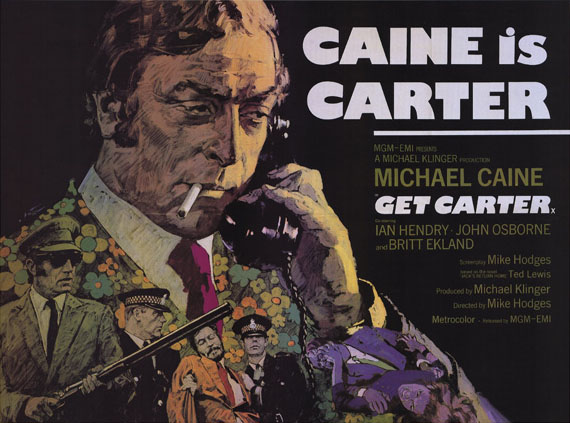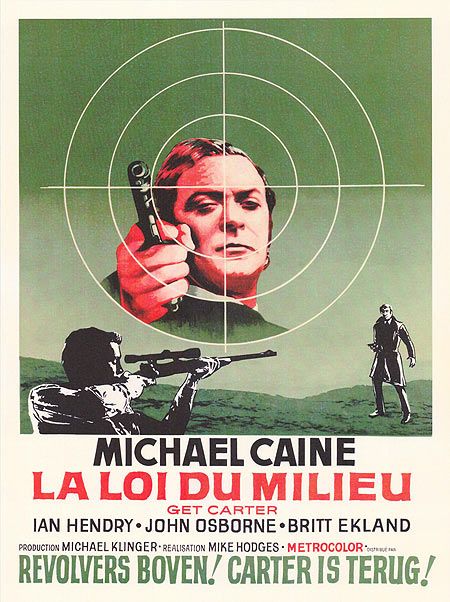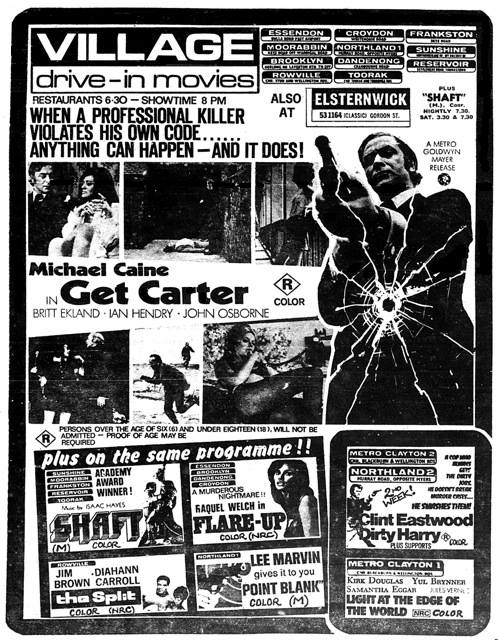Search
-
Recent Posts
- Dishing up Pulp Curry in a new way: why I am starting a Substack newsletter
- Book reviews: Deadly dames, midcentury Brit pulp and 1970s science fiction
- Mackenna’s Gold (1969): Gold, Ghosts and Frontier Violence
- Orphan Road book launch
- Orphan Road now available
- Pre-orders open for my new novel, Orphan Road
- Cover reveal: Orphan Road, my follow up to Gunshine State
- Breakfast in the Ruins podcast: New English Library Bikermania
- Why 1973 was the year Sidney Lumet took on police corruption
- Men’s Adventure Quarterly: Gang Girls issue
Categories
- 1960s American crime films
- 1970s American crime films
- 1980s American crime films
- 1990s American crime films
- Adrian McKinty
- Albert Dekker
- Andre De Toth
- Angela Savage
- Angie Dickinson
- Anthony Zerbe
- Asian noir
- Australian crime fiction
- Australian crime film
- Australian noir
- Australian popular culture
- Australian pulp fiction
- Australian television history
- Ava Gardner
- Beat culture
- Belmont Tower Books
- Ben Wheatley
- Billie Whitelaw
- Black pulp fiction
- Blaxsploitation
- Book cover design
- Book Reviews
- British crime cinema
- British pulp fiction
- Bryan Brown
- Burt Lancaster
- Carter Brown
- Charles Durning
- Charles Willeford
- Chester Himes
- Christopher G Moore
- Christopher Lee
- Cinema culture
- Claude Atkins
- Coronet Books
- Crawford Productions
- Crime Factory
- Crime Factory Publications
- Crime fiction
- Crime fiction and film from Africa
- Crime fiction and film from Cambodia
- Crime fiction and film from China
- Crime fiction and film from India
- Crime fiction and film from Indonesia
- Crime fiction and film from Japan
- Crime fiction and film from Laos
- Crime fiction and film from Latin and Central America
- Crime fiction and film from Malaysia
- Crime fiction and film from New Zealand
- Crime fiction and film from Scandinavia
- Crime fiction and film from Singapore
- Crime fiction and film from South Korea
- Crime fiction and film from Thailand
- Crime fiction and film from the Philippines
- Crime Fiction and film set in Vietnam
- Crime film
- Dangerous Visions and New Worlds Radical Science Fiction 1950 to 1985
- David Goodis
- David Peace
- David Whish-Wilson
- Derek Raymond
- Diana Dors
- Dirk Bogarde
- Don Siegel
- Don Winslow
- Donald Westlake aka Richard Stark
- Dystopian cinema
- Ernest Borgnine
- Eurocrime
- Fawcett Gold Medal Books
- Femme fatale
- Fernando Di Leo
- Filipino genre films
- Film Noir
- Forgotten Melbourne
- French cinema
- French crime fiction
- Garry Disher
- Gene Hackman
- George V Higgins
- Georges Simenon
- Ghost Money
- Giallo cinema
- Gil Brewer
- Girl Gangs, Biker Boys and Real Cool Cats: Pulp Fiction & Youth Culture, 1950-1980
- Gloria Grahame
- Gold Star Publications
- Gregory Peck
- Gunshine State
- Heist films
- Horror
- Horwitz Publications
- Humphrey Bogart
- Ian Fleming
- Interviews
- Ira Levin
- James Caan
- James Crumley
- James Ellroy
- James Hadley Chase
- James Woods
- Jim Brown
- Jim Thompson
- Joel Edgerton
- John Frankenheimer
- Joseph Losey
- Karen Black
- Kerry Greenwood
- Kinji Fukasaku
- Larry Kent
- Laura Elizabeth Woolett
- Lee Marvin
- Leigh Redhead
- Lindy Cameron
- M Emmet Walsh
- Mad Max
- Mafia
- Malla Nunn
- Martin Limon
- Megan Abbott
- Melbourne International Film Festival
- Melbourne Writers Festival
- Men's Adventure Magazines
- Michael Caine
- Michael Fassbender
- Mickey Spillane
- Monarch Books
- Ned Kelly Awards
- Neo Noir
- New English Library
- Newton Thornburg
- Noir Con
- Noir fiction
- Non-crime reviews
- Oren Moverman
- Orphan Road
- Ozsploitation
- Pan Books
- Parker
- Paul Newman
- Peter Boyle
- Peter Corris
- Peter Strickland
- Peter Yates
- Poliziotteschi
- Pulp fiction
- Pulp fiction in the 70s and 80s
- Pulp fiction set in Asia
- Pulp Friday
- Pulp paperback cover art
- Qui Xiaolong
- Raymond Chandler
- Richard Burton
- Richard Conte
- Robert Aldrich
- Robert Mitchum
- Robert Ryan
- Robert Stone
- Rock Hudson
- Roger Smith
- Rollerball
- Rosaleen Norton
- Roy Scheider
- Rural noir
- Sam Levene
- Sam Peckinpah
- Samuel Fuller
- Science fiction and fantasy
- Scripts Publications
- Sidney Lumet
- Sidney Poitier
- Simon Harvester
- Snowtown
- Snubnose Press
- Spies
- Stanley Baker
- Sterling Hayden
- Steve McQueen
- Sticking it the the Man Revolution and Counter Culture in Pulp and Popular Fiction 1950 1980
- Stuart Rosenberg
- Tandem Books
- Tart noir
- Tartan Noir
- Ted Lewis
- Toni Johnson Woods
- True crime
- Vicki Hendricks
- Victor Mature
- Vintage mug shots
- Vintage pulp paperback covers
- Wallace Stroby
- War film
- Westerns
- William Friedkin
- Woody Strode
- Yakuza films
- Yaphet Kotto
Nothing but noir
Recommended reading
The lurid world of pulp
- 20th century Danny Boy
- American Pulps
- Bear Alley
- Bloody, Spicy, Books
- Comics Down Under
- Everything second hand
- Existential Ennui
- Greenleaf Classic Books
- Irv O. Neil's Erotica is My Trade
- Killer Covers
- Lost Classics of Teen Lit 1939-1989
- Luminist Archives
- Men's Pulp Mags
- Mporcius Fiction Log
- Murder, Mayhem and Long Dogs
- Neglected Books
- Nocturnal Revelries
- Paperback Warrior
- Paperbacks of the Gods
- Pop Sensation
- Pulp artists
- Pulp Covers
- Pulp Crazy
- Pulp Flakes
- Pulp International
- Pulp Magazines Project
- Pulp Serenade
- Realms of the Night
- Romance Fiction Has a History
- Rough Edges
- Sin Street Sleaze
- Spy Guys and Gals
- The department of Afro American Research Arts & Culture
- The Dusty Bookcase
- The Haunted World of Richard Sala
- The Moon Lens
- The Nick Carter & Carter Brown Blog
- The Pulp & Paperback Fiction Reader
- Too Much Horror Fiction
- True Pulp Fiction
- Vault of Horror
- Vintage Nurse Romance Novels
- Vintage Romance Novels
- Welcome to the Pan Paperback
- Yellow and Creased
Support This Site
If you like what I do please support me on Ko-fi
Search Results for: ted lewis
Pulp Friday: Brighton Rock
 Today’s Pulp Friday is linked to my recent post on Nick Triplow’s Getting Carter: Ted Lewis & the Birth of Brit Noir, an upcoming biography of the author of the classic crime novel, Jack’s Return Home, which you can read here.
Today’s Pulp Friday is linked to my recent post on Nick Triplow’s Getting Carter: Ted Lewis & the Birth of Brit Noir, an upcoming biography of the author of the classic crime novel, Jack’s Return Home, which you can read here.
One of the aspects of the book I enjoyed was how Triplow weaved into his narrative a discussion of the cultural touchstones that would’ve influenced Lewis as he was growing up in the 1950s and 1960s. As Triplow makes clear, much of this was American, such things pulp novels and film noir. But among the local influences name checked by Triplow is Graham Greene’s novel, Brighton Rock, filmed in 1947 by John Boutling and starring a young Richard Attenborough as the vicious hoodlum, Pinkie Brown. A screen adaption shifting the story to the early 1960s and making Pinkie a moped driving mod was released in 2010.
The novel, which arguably made Greene’s name as a writer, was first published in the UK by Penguin in 1938 and has been republished numerous times. In addition to the classic orange Penguin cover, the book also received a more pulpy treatment by overseas publishers. One of these includes Australian pulp publisher Horwitz Publications, who released the edition above in 1961. This is one of a number of Penguin books republished by Horwitz, which the Australian company jazzed up with one its trademark lurid covers.… Read more
Pulp Friday: Hell is a City
 A very quick Pulp Friday offering, Maurice Procter’s Hell is a City, published by Arrow Books, 1957. I am not sure, but this edition may even be the first British release of the novel in paperback.
A very quick Pulp Friday offering, Maurice Procter’s Hell is a City, published by Arrow Books, 1957. I am not sure, but this edition may even be the first British release of the novel in paperback.
Procter was a former Manchester policeman turned crime writer, best known for his police procedurals featuring the character of Detective Chief Inspector Harry Martineau, based in a tough fictional northern England industrial town. Proctor penned 14 Martineau novels, which appeared between 1954 and 1969, of which Hell is a City was the first.
Two things have got me thinking about the Martineau books. The first is my PhD research at the moment, which has been looking at the prevalence of American style detective and PI crime fiction in the 1950s in the US, UK and Australia. Procter’s work is different from a lot of post-war British crime pulp, which was set in America.
I’ve also been reading Nick Triplow’s excellent biography of English crime writer, Ted Lewis, Getting Carter (which I’ll be reviewing on this site in the coming weeks).
Among the popular cultural touchstones, Triplow writes, that would inspire Lewis’s work, including the iconic series of British gangster novels featuring the character of Jack Carter, was the 1960 film adaption of Hell is City by Val Guest.… Read more
Posted in British crime cinema, British pulp fiction, Crime film, Pulp fiction, Pulp Friday, Pulp paperback cover art, Stanley Baker, Ted Lewis, Vintage pulp paperback covers
Tagged Detective Chief Inspector Harry Martineau, Getting Carter, Hell Drivers (1957), Hell is a City (1960), Jack Carter, Maurice Procter, Nick Triplow, Stanley Baker, Ted Lewis, The Criminal (1960), Val Guest
Ephemera from the 1971 film, Get Carter
Following on my essay earlier this week in the Los Angeles Review of Books on Ted Lewis, his Jack Carter books and the film adaption of the first book, Get Carter (which you can check out here if you if you are interested), I thought readers might be interested in a selection of ephemera from the books and film.
The 1971 movie, directed by Mike Hodges, does not need any introduction here. While it is by no means the best british crime movie ever made, as some would claim, it is a good one and has been very influential, in terms of plot, characterisation and visual feel.
Enjoy.
For those who are interested, there are a lot more terrific behind the scenes images from Get Carter here on the official Ian Hendry website.… Read more
Get Carter, again
It is impossible to discuss British author Ted Lewis’s 1970 novel, Jack’s Return Home, without mentioning its better-known 1971 film adaptation,Get Carter. Rarely has such an influential crime novel dwelt so deeply in the shadow of its cinematic adaptation. In the wake of the movie’s success, the book was quickly retitled Get Carter (which is how I’ll refer to it) and the main character forever associated with British actor Michael Caine, then at the height of his preternaturally long acting career, in a snappy suit and tie, grimly looking over the barrel of a shotgun.
Not that anything else Lewis wrote was particularly successful. As British crime writer Ray Banks observed in a piece on the site The Rap Sheet: “As far as forgotten books go, you could make a claim for pretty much anything Ted Lewis wrote.” But what Lewis lacked in sales, his books, particularly Get Carter, made up for in the glowing praise of crime writers, nearly all of it posthumous.
Get Carter and its subsequent prequels, Jack Carter’s Law (1974) and Jack Carter and the Mafia Pigeon (1977), have recently been rereleased by Syndicate Books, which marks the first time they have been available in North America for 40 years.… Read more
Noir Con or bust guest post #1: Heath Lowrance
 A couple of weeks ago I mentioned I’d be asking several US writers and bloggers I dig to guest post on Pulp Curry in the lead-up to my visit to the US to attend Noir Con in Philadelphia in early November. It’s a way of giving regular Pulp Curry readers a little taste of the crime writing scene in the US.
A couple of weeks ago I mentioned I’d be asking several US writers and bloggers I dig to guest post on Pulp Curry in the lead-up to my visit to the US to attend Noir Con in Philadelphia in early November. It’s a way of giving regular Pulp Curry readers a little taste of the crime writing scene in the US.
First up is Heath Lowrance, whose latest book City of Heretics has just come out through Snubnose Press, the same publisher as my debut novel Ghost Money.
City of Heretics is about an aging con named Crowe, just out of prison and back in Memphis, ready for some payback against the criminals who got him sent up. Before Crowe can enjoy his revenge he has to track down a brutal murderer cutting a swath through the city—ultimately leading Crowe to confront a bizarre secret society of serial killers masquerading as a Christian splinter-group.
It’s not the first time Lowrance has appeared on Pulp Curry. I reviewed his debut novel The Bastard Hand on this site last year. Lowrance writes across a number of genres, including crime fiction and Westerns. He’s one of those writers who combine the knack for telling a good hard boiled with excellent writing.… Read more

























